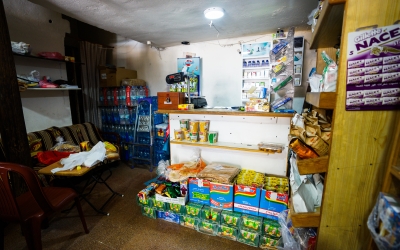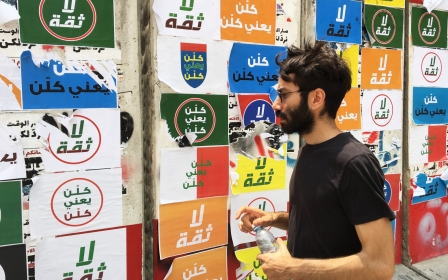Children 'will start dying from hunger' in Beirut, Save the Children warns
Lebanon's financial crisis has pushed almost a million people to the brink, with soaring food prices likely to cause children to die of starvation, Save the Children warned.
At least 910,000 people in the capital, Beirut, including 564,000 children, were eating insufficient amounts of food because of the economic crisis, according to a report released on Wednesday.
'I couldn't handle it and broke down in tears. My [nine-year-old] daughter wants to work just to carry some of the burden with us. Just to help us so her siblings don’t starve. I fear such a fate for my daughters'
- Lama, 27-year-old mother of three
"These numbers [are] likely to be just the tip of the iceberg as families across Lebanon struggle to cope with the soaring prices of food, rent and other necessities," the group said.
Jad Sakr, acting country director of Save the Children in Lebanon, said the crisis is affecting everyone, from Lebanese families to Palestinian and Syrian refugees.
"We will start seeing children dying from hunger before the end of the year," he said.
New MEE newsletter: Jerusalem Dispatch
Sign up to get the latest insights and analysis on Israel-Palestine, alongside Turkey Unpacked and other MEE newsletters
"Children, even those from Lebanese middle-income families, are increasingly eating less or nothing at all for a whole day just to make ends meet. In some cases, children are working to help with the family income, keeping them away from their education."
'Just to make ends meet'
Lebanon's economy began slipping out of control in September, but the crisis has been compounded in recent months by losses in income caused by the coronavirus pandemic.
The currency has lost more than 80 percent of its value in the past 10 months, and the government estimates that 75 percent of the population is currently in need of aid.
According to a report issued this month by the World Food Programme (WFP), prices for basic items such as food and shelter had increased by 169 percent in the same timeframe, while unemployment had risen by 35 percent in the formal sector, and up to 45 percent in the informal sector.
Last month, WFP said two-thirds of the households in Lebanon had lost income during the crisis, forcing many to spend less on food, go into debt, or dig into their savings.
"An astonishing 50 percent of Lebanese, 63 percent of Palestinians and 75 percent of Syrians were worried they would not have enough to eat," Wednesday's report by Save the Children said.
Lama, a 27-year-old Syrian refugee, told the charity that one of her daughters offered to sell tissues on the highway so her other siblings would not starve.
"If we have something to eat, we eat. If we don't have [food], then we don't eat," said Lama, who provided only her first name.
"There are times when we borrow money just to eat. What can we do? There are days my daughters cry themselves to sleep. Sometimes from hunger, sometimes [because of] the coronavirus. This crisis has deeply affected them."
Middle East Eye delivers independent and unrivalled coverage and analysis of the Middle East, North Africa and beyond. To learn more about republishing this content and the associated fees, please fill out this form. More about MEE can be found here.





